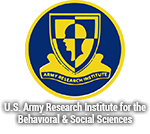X
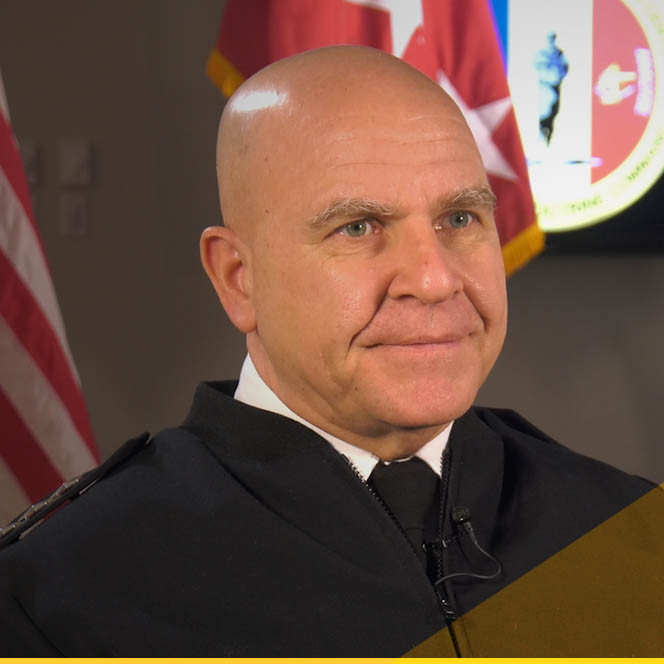 At time of recorded interview (January 2017), LTG (ret) H.R. McMaster, Ph. D. served as the Director of the Army Capabilities Integration Center (ARCIC) and Deputy Commanding General, Futures of the U.S. Army Training and Doctrine Command. He then went on to serve as the U.S. National Security advisor in March 2017. He has also previously served as Commanding General at the Maneuver Center of Excellence and Commander of the Combined Joint Inter¬Agency Task Force-Shafafiyat in Kabul, Afghanistan. He is known for playing significant roles in several overseas military operations, including the Gulf War, Operation Enduring Freedom, and Operation Iraqi Freedom. LTG McMaster's military education and training includes the Airborne and Ranger Schools, Armor Officer Basic and Career Courses, the Cavalry Leaders Course, the U.S. Army Command and General Staff College, and a U.S. Army War College fellowship at the Hoover Institution on War, Revolution, and Peace. He holds a Ph.D. in American History from the University of North Carolina at Chapel Hill and is a graduate of the United States Military Academy at West Point.
At time of recorded interview (January 2017), LTG (ret) H.R. McMaster, Ph. D. served as the Director of the Army Capabilities Integration Center (ARCIC) and Deputy Commanding General, Futures of the U.S. Army Training and Doctrine Command. He then went on to serve as the U.S. National Security advisor in March 2017. He has also previously served as Commanding General at the Maneuver Center of Excellence and Commander of the Combined Joint Inter¬Agency Task Force-Shafafiyat in Kabul, Afghanistan. He is known for playing significant roles in several overseas military operations, including the Gulf War, Operation Enduring Freedom, and Operation Iraqi Freedom. LTG McMaster's military education and training includes the Airborne and Ranger Schools, Armor Officer Basic and Career Courses, the Cavalry Leaders Course, the U.S. Army Command and General Staff College, and a U.S. Army War College fellowship at the Hoover Institution on War, Revolution, and Peace. He holds a Ph.D. in American History from the University of North Carolina at Chapel Hill and is a graduate of the United States Military Academy at West Point.
Role at time of video recording: Director of Army Capabilities Integration Center
Date of recording: January 2017
Expert Perspectives - Bios
LTG (ret) H. R. McMaster, Ph.D.
 At time of recorded interview (January 2017), LTG (ret) H.R. McMaster, Ph. D. served as the Director of the Army Capabilities Integration Center (ARCIC) and Deputy Commanding General, Futures of the U.S. Army Training and Doctrine Command. He then went on to serve as the U.S. National Security advisor in March 2017. He has also previously served as Commanding General at the Maneuver Center of Excellence and Commander of the Combined Joint Inter¬Agency Task Force-Shafafiyat in Kabul, Afghanistan. He is known for playing significant roles in several overseas military operations, including the Gulf War, Operation Enduring Freedom, and Operation Iraqi Freedom. LTG McMaster's military education and training includes the Airborne and Ranger Schools, Armor Officer Basic and Career Courses, the Cavalry Leaders Course, the U.S. Army Command and General Staff College, and a U.S. Army War College fellowship at the Hoover Institution on War, Revolution, and Peace. He holds a Ph.D. in American History from the University of North Carolina at Chapel Hill and is a graduate of the United States Military Academy at West Point.
At time of recorded interview (January 2017), LTG (ret) H.R. McMaster, Ph. D. served as the Director of the Army Capabilities Integration Center (ARCIC) and Deputy Commanding General, Futures of the U.S. Army Training and Doctrine Command. He then went on to serve as the U.S. National Security advisor in March 2017. He has also previously served as Commanding General at the Maneuver Center of Excellence and Commander of the Combined Joint Inter¬Agency Task Force-Shafafiyat in Kabul, Afghanistan. He is known for playing significant roles in several overseas military operations, including the Gulf War, Operation Enduring Freedom, and Operation Iraqi Freedom. LTG McMaster's military education and training includes the Airborne and Ranger Schools, Armor Officer Basic and Career Courses, the Cavalry Leaders Course, the U.S. Army Command and General Staff College, and a U.S. Army War College fellowship at the Hoover Institution on War, Revolution, and Peace. He holds a Ph.D. in American History from the University of North Carolina at Chapel Hill and is a graduate of the United States Military Academy at West Point.
Role at time of video recording: Director of Army Capabilities Integration Center
Date of recording: January 2017
X
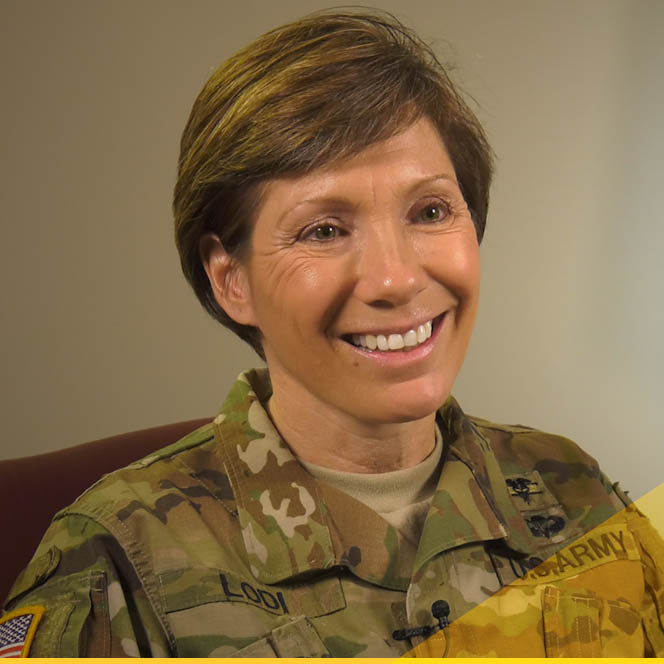 At time of recorded interview, BG Paula Lodi served as the Commander of the 44th Medical Brigade, Ft. Bragg, NC. She has 26 years of service in the U.S. Army, specializing in healthcare operations and multifunctional logistics. Her previous assignments include the Army staff at the Pentagon and Commander of the Special Troops Battalion, 15th Sustainment Brigade. She is a veteran of three tours in Iraq where she served as a Corps-level Operational Planner and as Executive Officer for a medical task force. Her service has also included humanitarian missions Operation Provide Comfort during the Gulf War and Hurricane Katrina relief. She holds Masters degrees in Military Operational Art and Science from the School of Advanced Military Studies, in National Security Policy Studies from the Naval War College, and in Public Administration from Troy University.
At time of recorded interview, BG Paula Lodi served as the Commander of the 44th Medical Brigade, Ft. Bragg, NC. She has 26 years of service in the U.S. Army, specializing in healthcare operations and multifunctional logistics. Her previous assignments include the Army staff at the Pentagon and Commander of the Special Troops Battalion, 15th Sustainment Brigade. She is a veteran of three tours in Iraq where she served as a Corps-level Operational Planner and as Executive Officer for a medical task force. Her service has also included humanitarian missions Operation Provide Comfort during the Gulf War and Hurricane Katrina relief. She holds Masters degrees in Military Operational Art and Science from the School of Advanced Military Studies, in National Security Policy Studies from the Naval War College, and in Public Administration from Troy University.
Role at time of video recording: Commander of the 44th Medical Brigade
Date of recording: February 2017
Expert Perspectives - Bios
BG Paula Lodi
 At time of recorded interview, BG Paula Lodi served as the Commander of the 44th Medical Brigade, Ft. Bragg, NC. She has 26 years of service in the U.S. Army, specializing in healthcare operations and multifunctional logistics. Her previous assignments include the Army staff at the Pentagon and Commander of the Special Troops Battalion, 15th Sustainment Brigade. She is a veteran of three tours in Iraq where she served as a Corps-level Operational Planner and as Executive Officer for a medical task force. Her service has also included humanitarian missions Operation Provide Comfort during the Gulf War and Hurricane Katrina relief. She holds Masters degrees in Military Operational Art and Science from the School of Advanced Military Studies, in National Security Policy Studies from the Naval War College, and in Public Administration from Troy University.
At time of recorded interview, BG Paula Lodi served as the Commander of the 44th Medical Brigade, Ft. Bragg, NC. She has 26 years of service in the U.S. Army, specializing in healthcare operations and multifunctional logistics. Her previous assignments include the Army staff at the Pentagon and Commander of the Special Troops Battalion, 15th Sustainment Brigade. She is a veteran of three tours in Iraq where she served as a Corps-level Operational Planner and as Executive Officer for a medical task force. Her service has also included humanitarian missions Operation Provide Comfort during the Gulf War and Hurricane Katrina relief. She holds Masters degrees in Military Operational Art and Science from the School of Advanced Military Studies, in National Security Policy Studies from the Naval War College, and in Public Administration from Troy University.
Role at time of video recording: Commander of the 44th Medical Brigade
Date of recording: February 2017
X
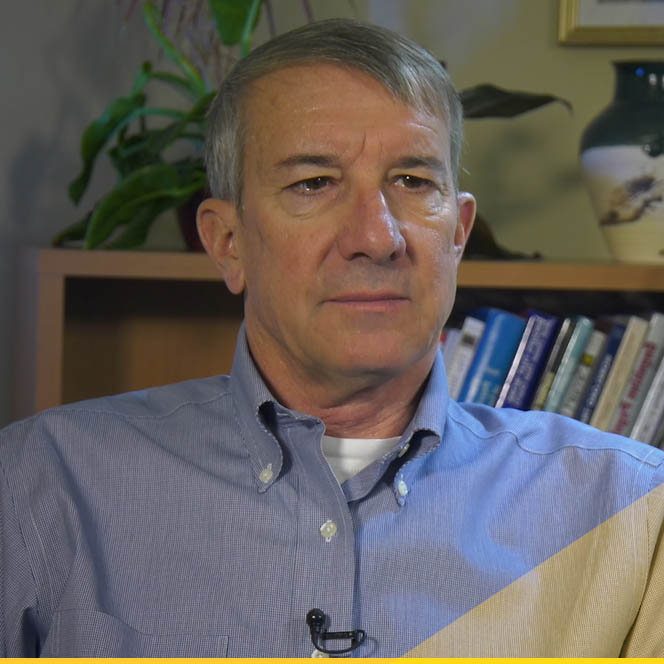 Jim Greer is a Retired Army Colonel, serving 30 years in CONUS, Europe and the Middle East, including combat operations in Iraq, Afghanistan, Palestine, and the Balkans. COL Greer (Ret.) commanded an infantry-heavy battalion task force in Bosnia, led the Operation Iraqi Freedom Study Group in the invasion of Iraq, was Chief of Staff of MNSTC-I and commanded 1st Armor Training Brigade. He played a significant role in Army transformation for Force XXI digitization and the Objective Force, was the Army’s representative to DOD’s Revolution in Military Affairs and led the transformation of Initial Entry Training from a Cold War paradigm to one that prepared Soldiers for 21st Century combat. An educator and trainer, he taught tactics at the U.S. Military Academy at West Point and was the Director of the School of Advanced Military Studies (SAMS). COL (Ret.) Greer’s military and training education includes a B.S. from West Point, an M.S. in Educational Consulting at Long Island University, an M.S. in National Security from National War College, and a Ph.D. in Education from Walden University.
Jim Greer is a Retired Army Colonel, serving 30 years in CONUS, Europe and the Middle East, including combat operations in Iraq, Afghanistan, Palestine, and the Balkans. COL Greer (Ret.) commanded an infantry-heavy battalion task force in Bosnia, led the Operation Iraqi Freedom Study Group in the invasion of Iraq, was Chief of Staff of MNSTC-I and commanded 1st Armor Training Brigade. He played a significant role in Army transformation for Force XXI digitization and the Objective Force, was the Army’s representative to DOD’s Revolution in Military Affairs and led the transformation of Initial Entry Training from a Cold War paradigm to one that prepared Soldiers for 21st Century combat. An educator and trainer, he taught tactics at the U.S. Military Academy at West Point and was the Director of the School of Advanced Military Studies (SAMS). COL (Ret.) Greer’s military and training education includes a B.S. from West Point, an M.S. in Educational Consulting at Long Island University, an M.S. in National Security from National War College, and a Ph.D. in Education from Walden University.
Role at time of video recording: VP, Center for Senior Leadership & Design, Abrams Learning & Information Systems, Inc.
Date of recording: November 2016
Expert Perspectives - Bios
Colonel (Ret.) Jim Greer, Ph.D.
 Jim Greer is a Retired Army Colonel, serving 30 years in CONUS, Europe and the Middle East, including combat operations in Iraq, Afghanistan, Palestine, and the Balkans. COL Greer (Ret.) commanded an infantry-heavy battalion task force in Bosnia, led the Operation Iraqi Freedom Study Group in the invasion of Iraq, was Chief of Staff of MNSTC-I and commanded 1st Armor Training Brigade. He played a significant role in Army transformation for Force XXI digitization and the Objective Force, was the Army’s representative to DOD’s Revolution in Military Affairs and led the transformation of Initial Entry Training from a Cold War paradigm to one that prepared Soldiers for 21st Century combat. An educator and trainer, he taught tactics at the U.S. Military Academy at West Point and was the Director of the School of Advanced Military Studies (SAMS). COL (Ret.) Greer’s military and training education includes a B.S. from West Point, an M.S. in Educational Consulting at Long Island University, an M.S. in National Security from National War College, and a Ph.D. in Education from Walden University.
Jim Greer is a Retired Army Colonel, serving 30 years in CONUS, Europe and the Middle East, including combat operations in Iraq, Afghanistan, Palestine, and the Balkans. COL Greer (Ret.) commanded an infantry-heavy battalion task force in Bosnia, led the Operation Iraqi Freedom Study Group in the invasion of Iraq, was Chief of Staff of MNSTC-I and commanded 1st Armor Training Brigade. He played a significant role in Army transformation for Force XXI digitization and the Objective Force, was the Army’s representative to DOD’s Revolution in Military Affairs and led the transformation of Initial Entry Training from a Cold War paradigm to one that prepared Soldiers for 21st Century combat. An educator and trainer, he taught tactics at the U.S. Military Academy at West Point and was the Director of the School of Advanced Military Studies (SAMS). COL (Ret.) Greer’s military and training education includes a B.S. from West Point, an M.S. in Educational Consulting at Long Island University, an M.S. in National Security from National War College, and a Ph.D. in Education from Walden University.
Role at time of video recording: VP, Center for Senior Leadership & Design, Abrams Learning & Information Systems, Inc.
Date of recording: November 2016
X
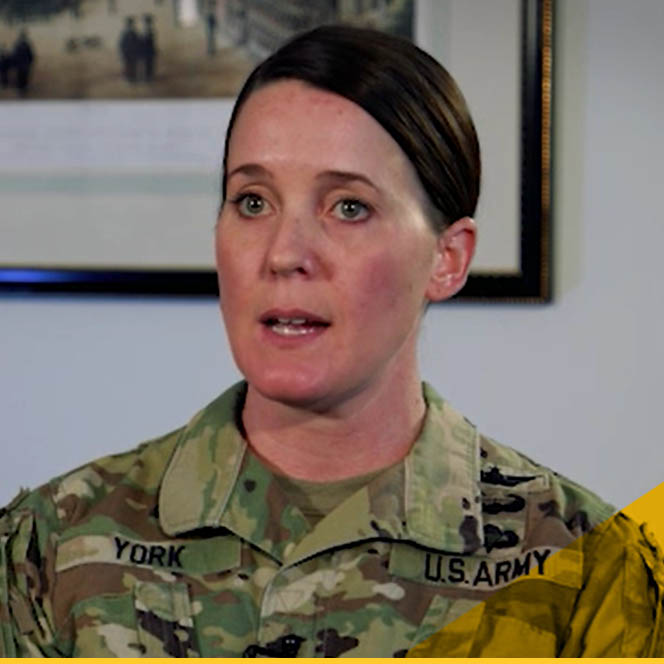 In 2005, Major York commissioned into the US Army from the University of Washington, Seattle. She holds a Masters of Military Art and Science as an Art of War Scholar from the US Army CGSC and a Masters of International Public Policy with a focus in Strategic Studies from the Johns Hopkins School of Advanced International Studies.
In 2005, Major York commissioned into the US Army from the University of Washington, Seattle. She holds a Masters of Military Art and Science as an Art of War Scholar from the US Army CGSC and a Masters of International Public Policy with a focus in Strategic Studies from the Johns Hopkins School of Advanced International Studies.
Her past assignments include Command of the Aviation Company, Multinational Force and Observers (MFO), Sinai Egypt. Battalion Executive Officer, 1-212th Aviation Regement, Fort Rucker, Alabama. Battalion Executive Officer, 5-158th Aviation Regiment, Commands of Alpha Company, 5-158th Aviation Regiment, and Headquarters Company, 12th Combat Aviation Brigade, Ansbach, Germany. As well as battalion and brigade operational staff assignments in the 4-101st Aviation Regiment and 159th Combat Aviation Brigade, Fort Campbell, Kentucky, and the 12th Combat Aviation Brigade, Germnay.
Her military schools include the Joint and Combined Warfighting School, the US Army CGSC, Avation Captain's Career Course, Officer Basic Course, UH-60 Instructor Pilot Course, UH-60 A/L/M Qualifications Courses, Air Assault and Airborne, and the Strategic Thinkers Program at John Hopkins School of Advanced International Studies.
Her deployments include OEF 2008-2009, 2012, 2014, and overseas assignements in Germany and the Sinai Peninsula, Egypt.
Expert Perspectives - Bios
MAJ Amoreena York
 In 2005, Major York commissioned into the US Army from the University of Washington, Seattle. She holds a Masters of Military Art and Science as an Art of War Scholar from the US Army CGSC and a Masters of International Public Policy with a focus in Strategic Studies from the Johns Hopkins School of Advanced International Studies.
In 2005, Major York commissioned into the US Army from the University of Washington, Seattle. She holds a Masters of Military Art and Science as an Art of War Scholar from the US Army CGSC and a Masters of International Public Policy with a focus in Strategic Studies from the Johns Hopkins School of Advanced International Studies.
Her past assignments include Command of the Aviation Company, Multinational Force and Observers (MFO), Sinai Egypt. Battalion Executive Officer, 1-212th Aviation Regement, Fort Rucker, Alabama. Battalion Executive Officer, 5-158th Aviation Regiment, Commands of Alpha Company, 5-158th Aviation Regiment, and Headquarters Company, 12th Combat Aviation Brigade, Ansbach, Germany. As well as battalion and brigade operational staff assignments in the 4-101st Aviation Regiment and 159th Combat Aviation Brigade, Fort Campbell, Kentucky, and the 12th Combat Aviation Brigade, Germnay.
Her military schools include the Joint and Combined Warfighting School, the US Army CGSC, Avation Captain's Career Course, Officer Basic Course, UH-60 Instructor Pilot Course, UH-60 A/L/M Qualifications Courses, Air Assault and Airborne, and the Strategic Thinkers Program at John Hopkins School of Advanced International Studies.
Her deployments include OEF 2008-2009, 2012, 2014, and overseas assignements in Germany and the Sinai Peninsula, Egypt.
X
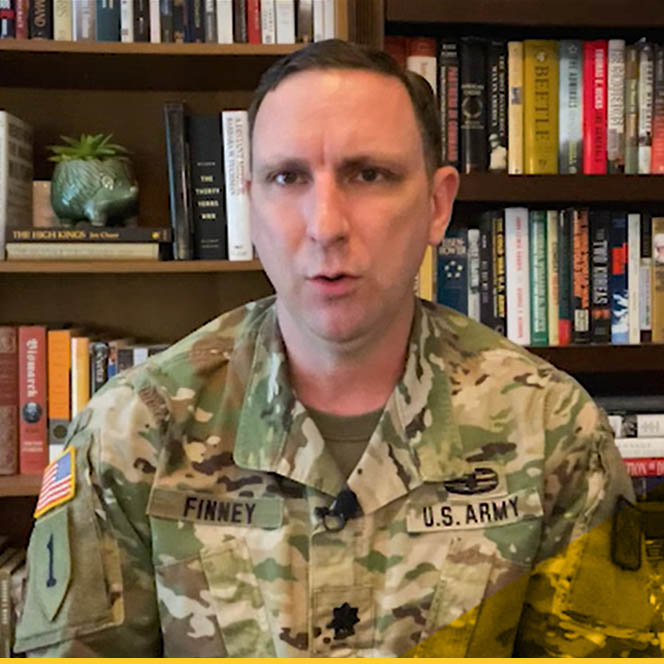 Nathan K. Finney is a strategist in the U.S. Army, currently serving as a Goodpaster Scholar and pursuing a doctorate in history at Duke University. A former armor officer, he has served at the tactical, operational, and strategic levels, including tours in Iraq and Afghanistan. Nathan is the co-editor and an author of Redefining the Modern Military: The Intersection of Profession and Ethics and the editor and an author of On Strategy: A Primer.
Nathan K. Finney is a strategist in the U.S. Army, currently serving as a Goodpaster Scholar and pursuing a doctorate in history at Duke University. A former armor officer, he has served at the tactical, operational, and strategic levels, including tours in Iraq and Afghanistan. Nathan is the co-editor and an author of Redefining the Modern Military: The Intersection of Profession and Ethics and the editor and an author of On Strategy: A Primer.
Nathan is also a Non-Resident Fellow at the Australian Strategic Policy Institute; a former a term member at the Council on Foreign Relations; Non-Resident Fellow at the Modern War Institute at West Point; the creator, co-founder, and first Executive Director of the non-profit organization The Strategy Bridge; a founder and former board member of the Military Writers Guild; founder and first Managing Director of the Military Fellowship at the Project on International Peace & Security; a member of Military Strategy Journal's Editorial Advisory Board; and a founding board member of the Defense Entrepreneurs Forum.
Nathan holds master’s degrees in public administration from Harvard University and the University of Kansas, as well as a B.A. in Anthropology from the University of Arizona.
You can find him on Twitter @NKFinney.
Expert Perspectives - Bios
LTC Nate Finney
 Nathan K. Finney is a strategist in the U.S. Army, currently serving as a Goodpaster Scholar and pursuing a doctorate in history at Duke University. A former armor officer, he has served at the tactical, operational, and strategic levels, including tours in Iraq and Afghanistan. Nathan is the co-editor and an author of Redefining the Modern Military: The Intersection of Profession and Ethics and the editor and an author of On Strategy: A Primer.
Nathan K. Finney is a strategist in the U.S. Army, currently serving as a Goodpaster Scholar and pursuing a doctorate in history at Duke University. A former armor officer, he has served at the tactical, operational, and strategic levels, including tours in Iraq and Afghanistan. Nathan is the co-editor and an author of Redefining the Modern Military: The Intersection of Profession and Ethics and the editor and an author of On Strategy: A Primer.
Nathan is also a Non-Resident Fellow at the Australian Strategic Policy Institute; a former a term member at the Council on Foreign Relations; Non-Resident Fellow at the Modern War Institute at West Point; the creator, co-founder, and first Executive Director of the non-profit organization The Strategy Bridge; a founder and former board member of the Military Writers Guild; founder and first Managing Director of the Military Fellowship at the Project on International Peace & Security; a member of Military Strategy Journal's Editorial Advisory Board; and a founding board member of the Defense Entrepreneurs Forum.
Nathan holds master’s degrees in public administration from Harvard University and the University of Kansas, as well as a B.A. in Anthropology from the University of Arizona.
You can find him on Twitter @NKFinney.
X
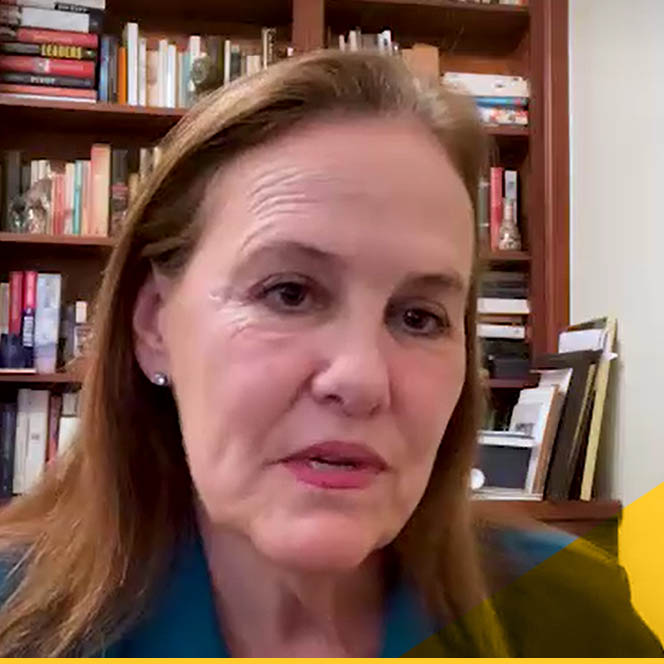 Michèle Flournoy is Co-Founder and Managing Partner of WestExec Advisors, and former Co-Founder and Chief Executive Officer of the Center for a New American Security (CNAS), where she currently serves on the board.
Michèle Flournoy is Co-Founder and Managing Partner of WestExec Advisors, and former Co-Founder and Chief Executive Officer of the Center for a New American Security (CNAS), where she currently serves on the board.
Michèle served as the Under Secretary of Defense for Policy from February 2009 to February 2012. She was the principal advisor to the Secretary of Defense in the formulation of national security and defense policy, oversight of military plans and operations, and in National Security Council deliberations. She led the development of the Department of Defense’s 2012 Strategic Guidance and represented the Department in dozens of foreign engagements, in the media and before Congress.
Prior to confirmation, Michèle co-led President Obama’s transition team at the Defense Department.
In January 2007, Michèle co-founded CNAS, a bipartisan think tank dedicated to developing strong, pragmatic and principled national security policies. She served as CNAS’ President until 2009 and returned as CEO in 2014.
Michèle serves on the boards of Booz Allen Hamilton, Amida Technology Solutions, The Mission Continues, Spirit of America, The U.S. Naval Academy Foundation, and CARE. She serves on the advisory boards of SINE, Equal AI, and The War Horse and on the honorary advisory committee of The Leadership Council for Women in National Security. She is a Senior Fellow at Harvard’s Belfer Center for Science and International Affairs, a current member of the Council on Foreign Relations and the Aspen Strategy Group, and a former member of the President’s Intelligence Advisory Board, the CIA Director’s External Advisory Board and the Defense Policy Board.
Michèle earned a bachelor’s degree in social studies from Harvard University and a master’s degree in international relations from Balliol College, Oxford University, where she was a Newton-Tatum scholar.
Expert Perspectives - Bios
Michèle Flournoy, Co-Founder and Managing Partner of WestExec Advisors
 Michèle Flournoy is Co-Founder and Managing Partner of WestExec Advisors, and former Co-Founder and Chief Executive Officer of the Center for a New American Security (CNAS), where she currently serves on the board.
Michèle Flournoy is Co-Founder and Managing Partner of WestExec Advisors, and former Co-Founder and Chief Executive Officer of the Center for a New American Security (CNAS), where she currently serves on the board.
Michèle served as the Under Secretary of Defense for Policy from February 2009 to February 2012. She was the principal advisor to the Secretary of Defense in the formulation of national security and defense policy, oversight of military plans and operations, and in National Security Council deliberations. She led the development of the Department of Defense’s 2012 Strategic Guidance and represented the Department in dozens of foreign engagements, in the media and before Congress.
Prior to confirmation, Michèle co-led President Obama’s transition team at the Defense Department.
In January 2007, Michèle co-founded CNAS, a bipartisan think tank dedicated to developing strong, pragmatic and principled national security policies. She served as CNAS’ President until 2009 and returned as CEO in 2014.
Michèle serves on the boards of Booz Allen Hamilton, Amida Technology Solutions, The Mission Continues, Spirit of America, The U.S. Naval Academy Foundation, and CARE. She serves on the advisory boards of SINE, Equal AI, and The War Horse and on the honorary advisory committee of The Leadership Council for Women in National Security. She is a Senior Fellow at Harvard’s Belfer Center for Science and International Affairs, a current member of the Council on Foreign Relations and the Aspen Strategy Group, and a former member of the President’s Intelligence Advisory Board, the CIA Director’s External Advisory Board and the Defense Policy Board.
Michèle earned a bachelor’s degree in social studies from Harvard University and a master’s degree in international relations from Balliol College, Oxford University, where she was a Newton-Tatum scholar.
X
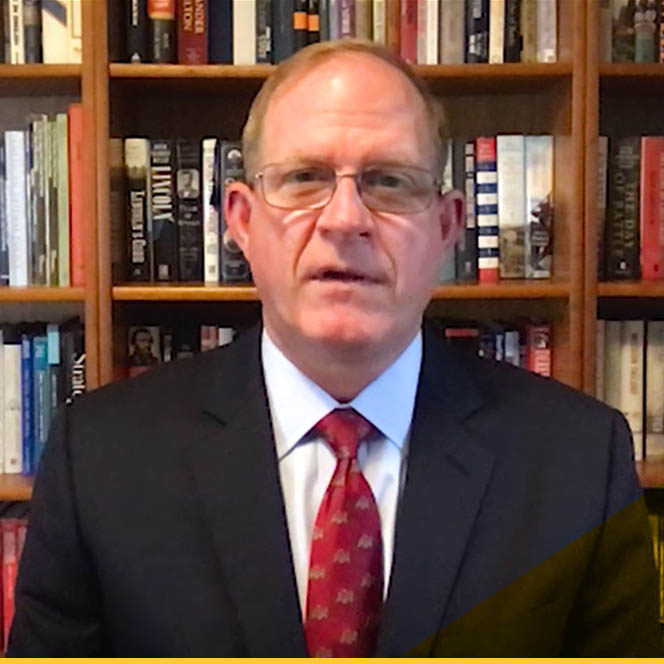 Richard A. Lacquement, Jr., Ph.D., is research professor of national security affairs in the U.S. Army War College’s Strategic Studies Institute. He is a retired Army colonel (Feld artillery and strategist) with combat deployments in Iraq/Kuwait (1990 to 1991), Iraq (2003), and Afghanistan (2010 to 2011). He served as a strategist in the Office of the Secretary of Defense for Policy and for U.S. Forces Korea as chief of plans. He has been a professor at West Point, the Naval War College, and the Army War College, to include eight years as Dean of the U.S. Army War College’s School of Strategic Landpower.
Richard A. Lacquement, Jr., Ph.D., is research professor of national security affairs in the U.S. Army War College’s Strategic Studies Institute. He is a retired Army colonel (Feld artillery and strategist) with combat deployments in Iraq/Kuwait (1990 to 1991), Iraq (2003), and Afghanistan (2010 to 2011). He served as a strategist in the Office of the Secretary of Defense for Policy and for U.S. Forces Korea as chief of plans. He has been a professor at West Point, the Naval War College, and the Army War College, to include eight years as Dean of the U.S. Army War College’s School of Strategic Landpower.
The opinions expressed here do not represent those of the Army War College, the Department of Defense, or any part of the U.S. government.
Expert Perspectives - Bios
Dr. Richard Lacquement
 Richard A. Lacquement, Jr., Ph.D., is research professor of national security affairs in the U.S. Army War College’s Strategic Studies Institute. He is a retired Army colonel (Feld artillery and strategist) with combat deployments in Iraq/Kuwait (1990 to 1991), Iraq (2003), and Afghanistan (2010 to 2011). He served as a strategist in the Office of the Secretary of Defense for Policy and for U.S. Forces Korea as chief of plans. He has been a professor at West Point, the Naval War College, and the Army War College, to include eight years as Dean of the U.S. Army War College’s School of Strategic Landpower.
Richard A. Lacquement, Jr., Ph.D., is research professor of national security affairs in the U.S. Army War College’s Strategic Studies Institute. He is a retired Army colonel (Feld artillery and strategist) with combat deployments in Iraq/Kuwait (1990 to 1991), Iraq (2003), and Afghanistan (2010 to 2011). He served as a strategist in the Office of the Secretary of Defense for Policy and for U.S. Forces Korea as chief of plans. He has been a professor at West Point, the Naval War College, and the Army War College, to include eight years as Dean of the U.S. Army War College’s School of Strategic Landpower.
The opinions expressed here do not represent those of the Army War College, the Department of Defense, or any part of the U.S. government.
X
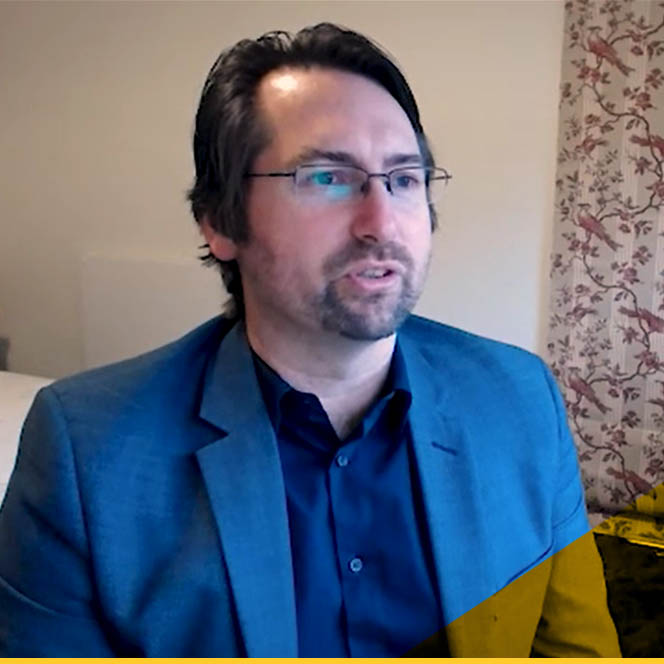 Lt Col Leon Young, PhD is a retired Army Officer, part-time academic and full-time consultant on organisational resilience. Leveraging his years of experience in designing future capability concepts, strategic policy and complex decision making, Leon is currently building an ethical decision-making framework for a government organization. His papers on strategic thinking have been used as foundational texts for a number of post-graduate courses on strategic decision making.
Lt Col Leon Young, PhD is a retired Army Officer, part-time academic and full-time consultant on organisational resilience. Leveraging his years of experience in designing future capability concepts, strategic policy and complex decision making, Leon is currently building an ethical decision-making framework for a government organization. His papers on strategic thinking have been used as foundational texts for a number of post-graduate courses on strategic decision making.
Expert Perspectives - Bios
Dr. Leon Young
 Lt Col Leon Young, PhD is a retired Army Officer, part-time academic and full-time consultant on organisational resilience. Leveraging his years of experience in designing future capability concepts, strategic policy and complex decision making, Leon is currently building an ethical decision-making framework for a government organization. His papers on strategic thinking have been used as foundational texts for a number of post-graduate courses on strategic decision making.
Lt Col Leon Young, PhD is a retired Army Officer, part-time academic and full-time consultant on organisational resilience. Leveraging his years of experience in designing future capability concepts, strategic policy and complex decision making, Leon is currently building an ethical decision-making framework for a government organization. His papers on strategic thinking have been used as foundational texts for a number of post-graduate courses on strategic decision making.
VIDEOS
Bios
Click a featured expert below to view their bio.
Video Library
Filter on expert OR topic OR exercise
Expert:Topic:
Exercise:
